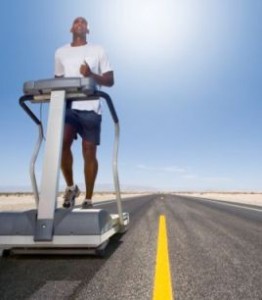 People who struggle with their weight are often prone to “emotional eating”, consuming food as a response to mental triggers rather than physical hunger. Often, dieters fail to lose weight not because their diet plan itself is flawed, but because they are knocked off course by feeling stressed, tired, upset or bored.
People who struggle with their weight are often prone to “emotional eating”, consuming food as a response to mental triggers rather than physical hunger. Often, dieters fail to lose weight not because their diet plan itself is flawed, but because they are knocked off course by feeling stressed, tired, upset or bored.
The last of these is an especially common cue for many people to eat. For some, it’s a habit learned in childhood (“I’m bored, mum!” – “Run down to the shop and buy yourself a candy bar, then.”) For others, it’s a reaction to the dull parts of adult life: munching on biscuits while rocking the baby to sleep, or getting yet another handful of chocolates because the afternoon is really dragging at work.
Avoid Snacking When You’re Bored
When you find yourself thinking, “I’m bored, maybe I’ll have a cookie,” then get straight out of that mindset:
- If you’re genuinely hungry, have some fruit or a small sandwich.
- Cravings can be beaten, just by sitting them out. Force yourself to wait 20 minutes before getting that snack, and nine times out of ten, you’ll no longer want it.
- Find something to do – ideally, an activity that makes it hard to eat at the same time.
Understanding Your Danger Points
Keep a food diary for a couple of weeks, and write down not only what you ate and when, but why you ate. (Hunger, because friends were eating, because it was lunch-time, boredom, stress..?)
When are you most likely to eat from boredom? Maybe it’s when you have to hang around at home, waiting for a delivery. Or perhaps it’s when you get in from work and you’re waiting for your partner to come home. Once you’ve figured out the pattern, work out how to change it!
- Find a hobby or interest to occupy you, if you’ve got too much time on your hands
- Use those “hanging around” moments, to blitz through all the little jobs you keep putting off (cleaning the oven, anyone?)
- If you’re regularly twiddling your thumbs at work, see if there’s a stressed colleague who could use your help.
What are your tips for avoiding boredom-induced snacking?
—
Article courtesy of: diet-blog
Image courtesy from: Tony Jalicea



